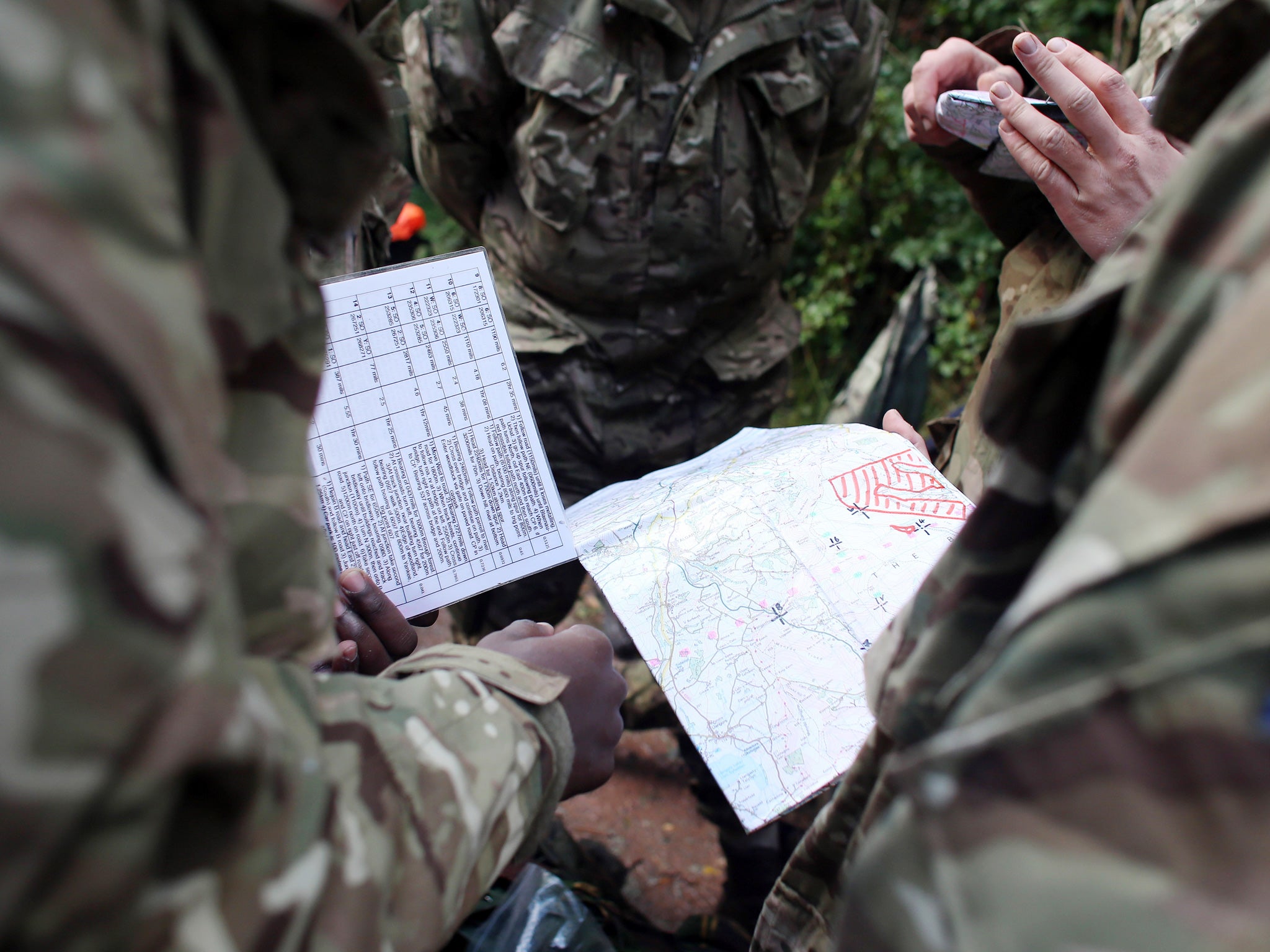MoD told to tackle risks after heatwave training deaths
HSE issues order after three Army reservists died in Brecon Beacons in July 2013 after demanding SAS selection exercise

The Ministry of Defence has been ordered to take action to deal with risks from military selection exercises after the deaths of three Army reservists in the Brecon Beacons.
The three men died after falling ill during gruelling SAS selection training on the highest mountain in south Wales during the hottest days of the year.
A joint Health and Safety Executive (HSE) and police investigation into the circumstances surrounding the deaths is continuing.
But the HSE today issued a notice ordering the MoD to take action to deal with the potentially fatal risks such top flight selection processes pose to those taking part.
"HSE has issued a Crown Improvement Notice on the Ministry of Defence following the deaths of three Army reservists while on selection tests on the Brecon Beacons in July," a spokesman said.
"The notice requires the Ministry to take action to deal with risks arising from its military selection exercises.
"HSE continues to investigate the deaths, supporting Dyfed Powys Police which is leading the investigation."
Edward John Maher, 31, Craig John Roberts, 24, and James Dunsby, 31, all died as a result of taking part in the demanding SAS selection in July.
A number of other soldiers taking part in the programme on the day also collapsed and needed medical attention.
It is thought that the group involved were carrying out an exercise known as the "Fan Dance".
It requires a soldier carrying a weighted pack and rifle to march up and down 2,900ft high Pen y Fan mountain, then doing it again in reverse, in a set time.
On the day in question, July 13, temperatures hit 29.5C, and emergency crews were called to Pen y Fan after reports that six soldiers had collapsed suffering heat exhaustion.
Witnesses said they had seen soldiers looking exhausted and making a desperate plea for water.
Lance Corporal Maher, known to friends as Eddie, had served in Iraq and Afghanistan in an elite special reserve unit often behind enemy lines.
Qualified teacher Lance Corporal Roberts, of Penrhyn Bay, near Llandudno, was pronounced dead on the mountainside, while Lance Corporal Maher and Corporal Dunsby were taken to hospital.
Lance Corporal Maher died three hours later in Prince Charles Hospital in Merthyr Tydfil.
Corporal Dunsby, a political science graduate from Bath, was transferred to the Queen Elizabeth Hospital, Birmingham, but was pronounced dead on July 30.
The deaths triggered a series of investigations which are ongoing. Dyfed Powys Police planned to interview almost 100 soldiers and are working closely with Army officials.
A separate fact-finding mission by a coroner was also launched, with human rights legislation being used to see whether the soldiers should have been better protected.
Detective Inspector Iwan Jones told a pre-inquest review hearing at Aberdare Coroner's Court at the start of September the interview process would take weeks to conclude.
"Having reviewed some of the evidence we have decided to expand the investigation. We are aiming to have statements from a substantial number of soldiers - between 94 and 96 - emergency service personnel and members of the public," he said.
Police, Army and HSE officials have met in private to discuss their investigations with the police taking the role of primary investigator.
PA
Join our commenting forum
Join thought-provoking conversations, follow other Independent readers and see their replies
Comments
Bookmark popover
Removed from bookmarks